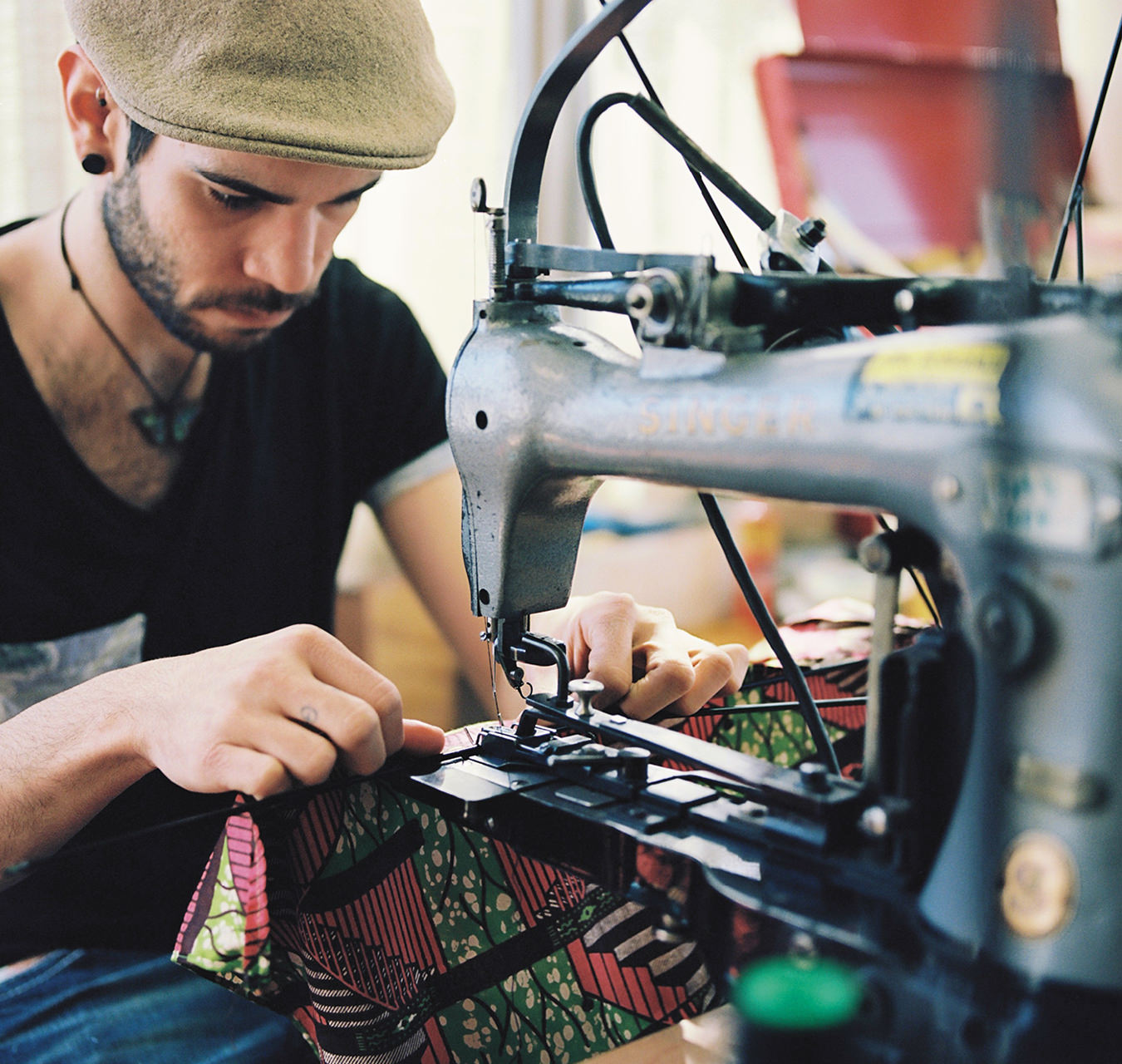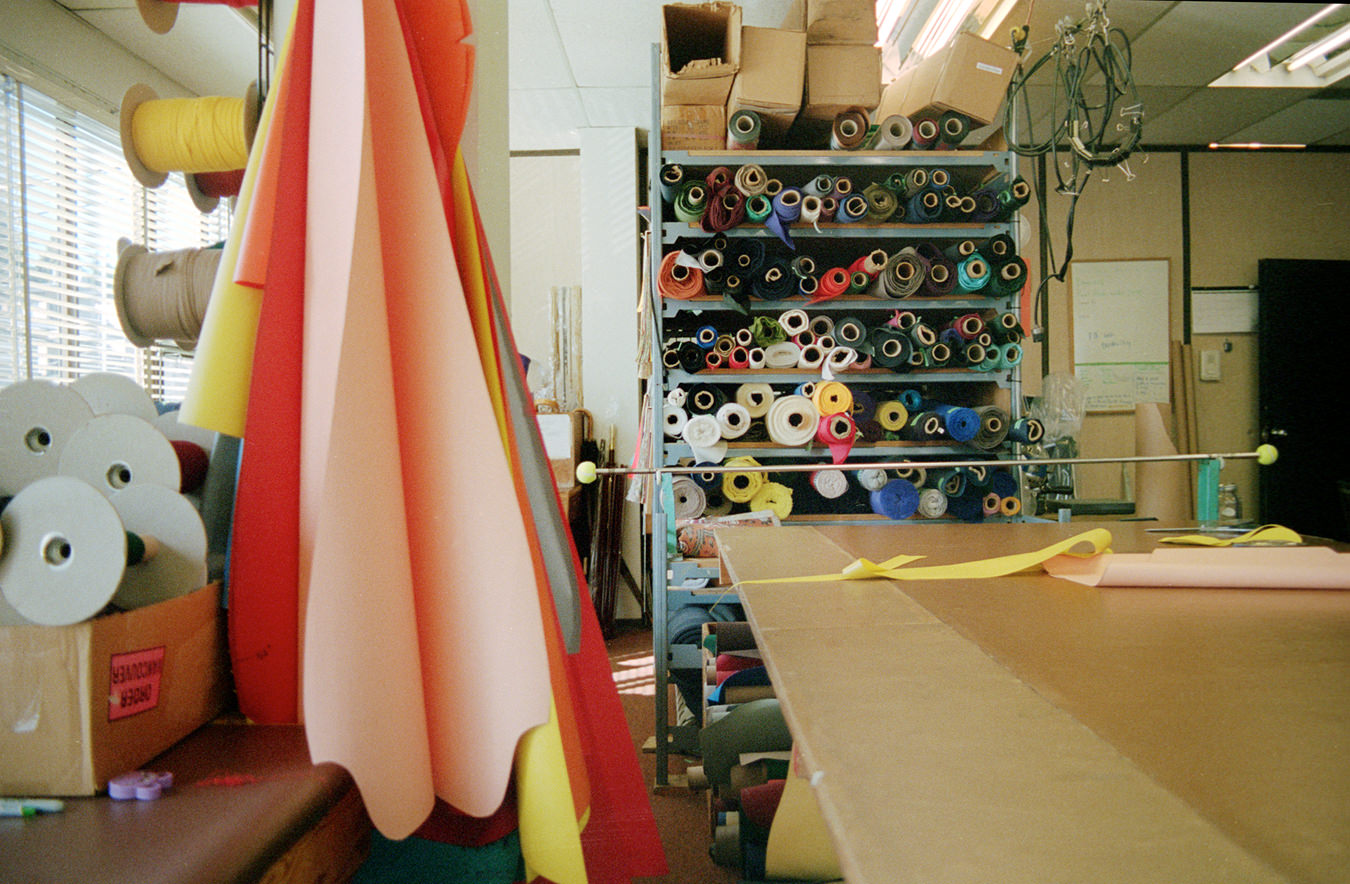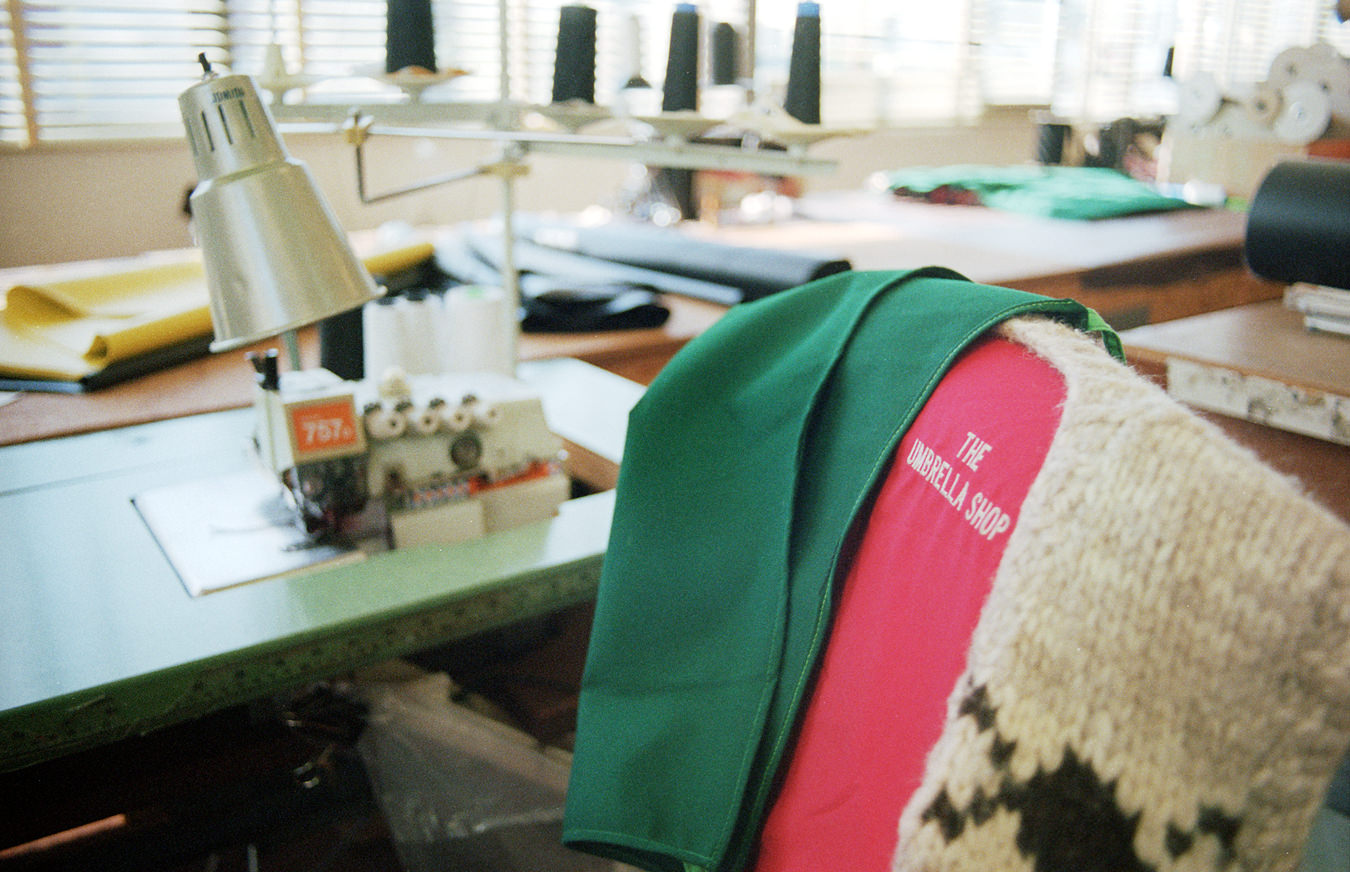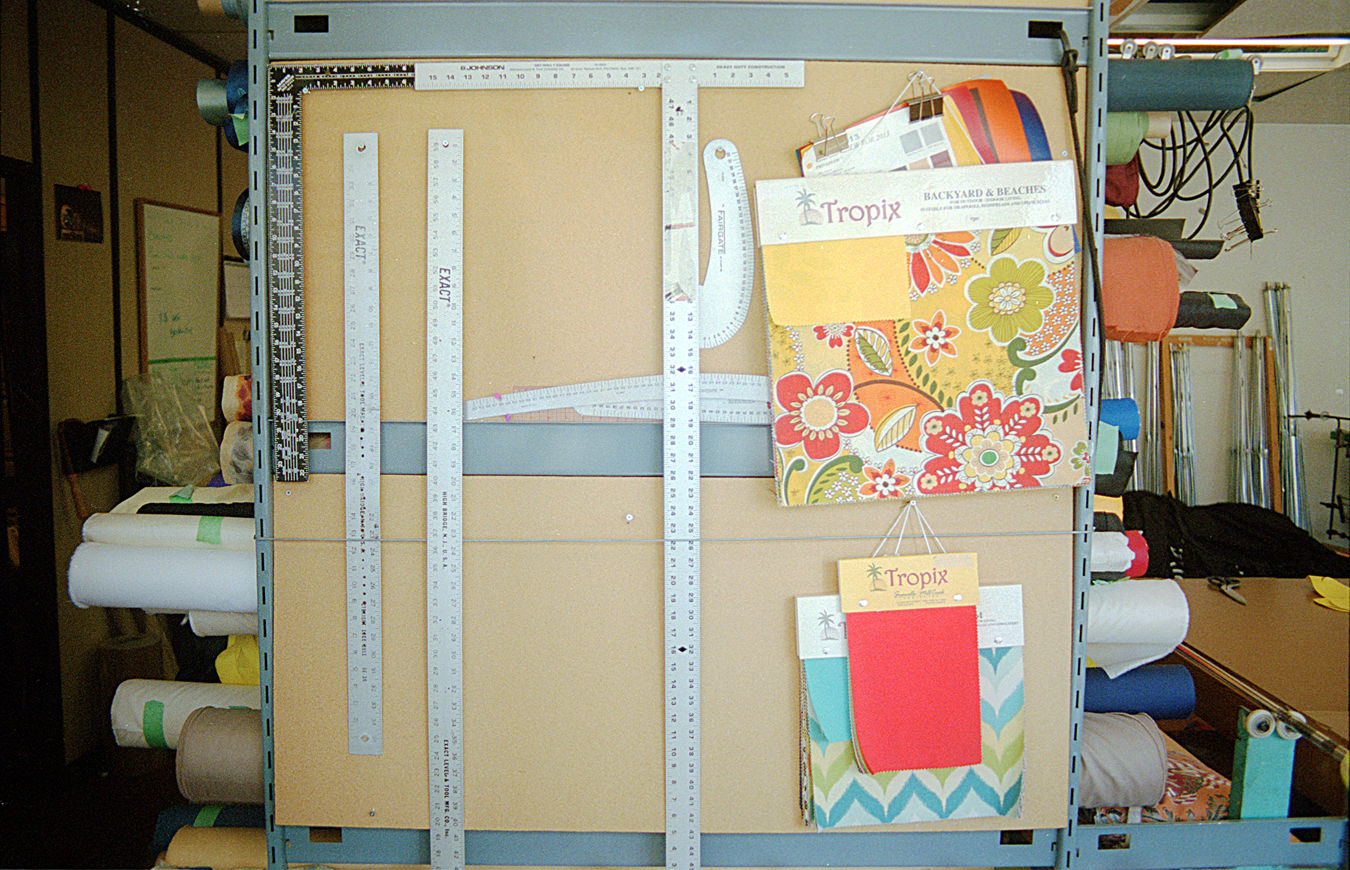There are only a few places where a rainy day is always considered a good day. One is The Umbrella Shop in Vancouver—the last umbrella factory in North America. Here, the Flader family and their staff have designed, crafted, and repaired umbrellas since the 1930s using their original Singer sewing machines. It is a peculiar business that Corry Flader, the granddaughter of founder Isadore, is enhancing through the globalized market using a cocktail of creativity, marketing, and passion.
The Umbrella Shop produces almost any kind of handmade umbrellas: from stick to folding, manual, auto-open, and patio. It also supplies a variety of businesses, from the film industry to bars and cafes, and gives care to the customers who just pop in to the factory at 1106 West Broadway. “It is a business run on pride rather than finance,” says Flader, sitting in her office at the factory. The place looks very authentic. A light smell of glue and the noise of the old sewing machines give a retro atmosphere to the main room. Since Flader took over the business in 2003, she has not changed a thing. Big working tables fill up an open space where the manufacturers cut the patterns from the fabric by hand and ensure all the right pieces are in place before sewing. All of the 15 people working in there have been hired without any prior experience. In fact, Flader trains her team from square one. “They have to learn how to make umbrellas here,” she says. “It is like in the Renaissance when artists had to go through a period of apprenticeship before performing.” She jokes, but this is her way of transmitting decades of family know-how.
Isadore Flader started the legacy of this third-generation business back in the ‘20s. He began mending umbrellas in Toronto as a door-to-door repair man, and eventually moved to Vancouver with his family and opened his first shop in the heart of downtown. Today, the family also has a store on Granville Island. Even though The Umbrella Shop is a factory, it still works like a little corner shop when it comes to service. Flader knows the taste of her customers by heart; she identifies which umbrellas work best for different personalities, needs, and cultures. “The Japanese people love umbrellas that harmonize with the movements of the wind,” she explains. “The Europeans and Canadians want hard frames that can resist any weather condition. Vancouverites prefer black solid umbrellas as first choice, and as second…guess what? Yellow!”
The Umbrella Shop products don’t go into major department stores. Instead, Flader prefers to let people buy directly from the factory. This helps her to keep the quality high and the prices down. It is a business recipe that was made possible by outsmarting what was supposed to be a great enemy for a small Canadian umbrella factory: globalization. “I want to make something that is better than anyone else’s,” says Flader. “I still use those old sewing machines from the ‘50s, and it was my decision. The cons are probably greater than the pros. For example, getting supplies is a real challenge today. But they have a soul, and when people ask why I’m the last one in North America doing it so, I say that this is part of the answer. To me it is really important to be the last umbrella factory. Call it marketing, if you like.” In addition to that, the rise of the internet opened up a lot of possibilities, breaking down the geographical boundaries.
Flader believes that as a society, we are just starting to get away from the “dollar store products”: “There are always more and more people that want value for money, and that don’t want things to fall apart.” Flader has umbrellas in her DNA. When she takes one of her products in her hand, she looks at it carefully, examining every detail. If she happens to pick up one with a little imperfection, she just smiles. “I love imperfection,” she says. “It is the essence of handcrafted objects.”
_________













